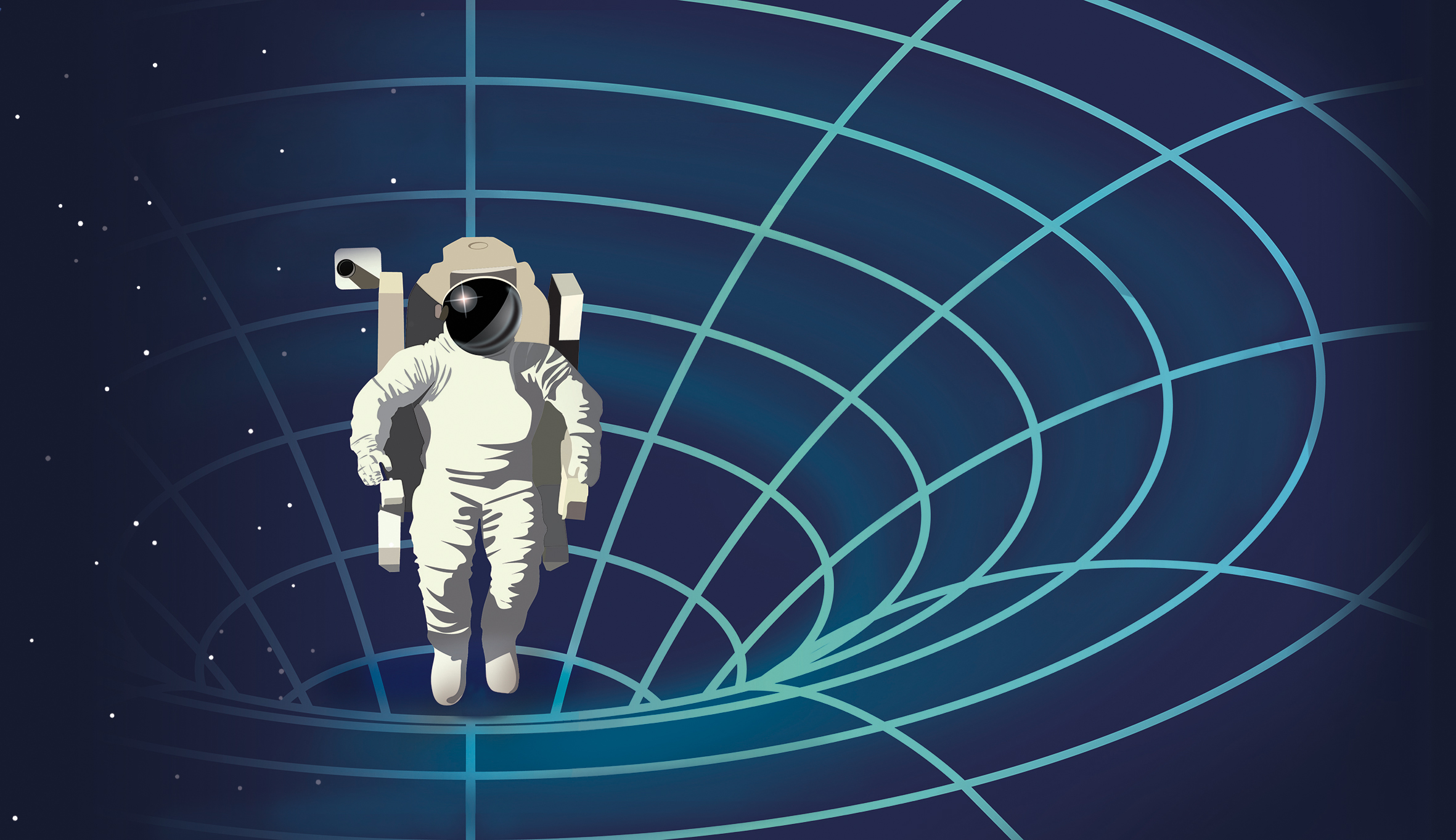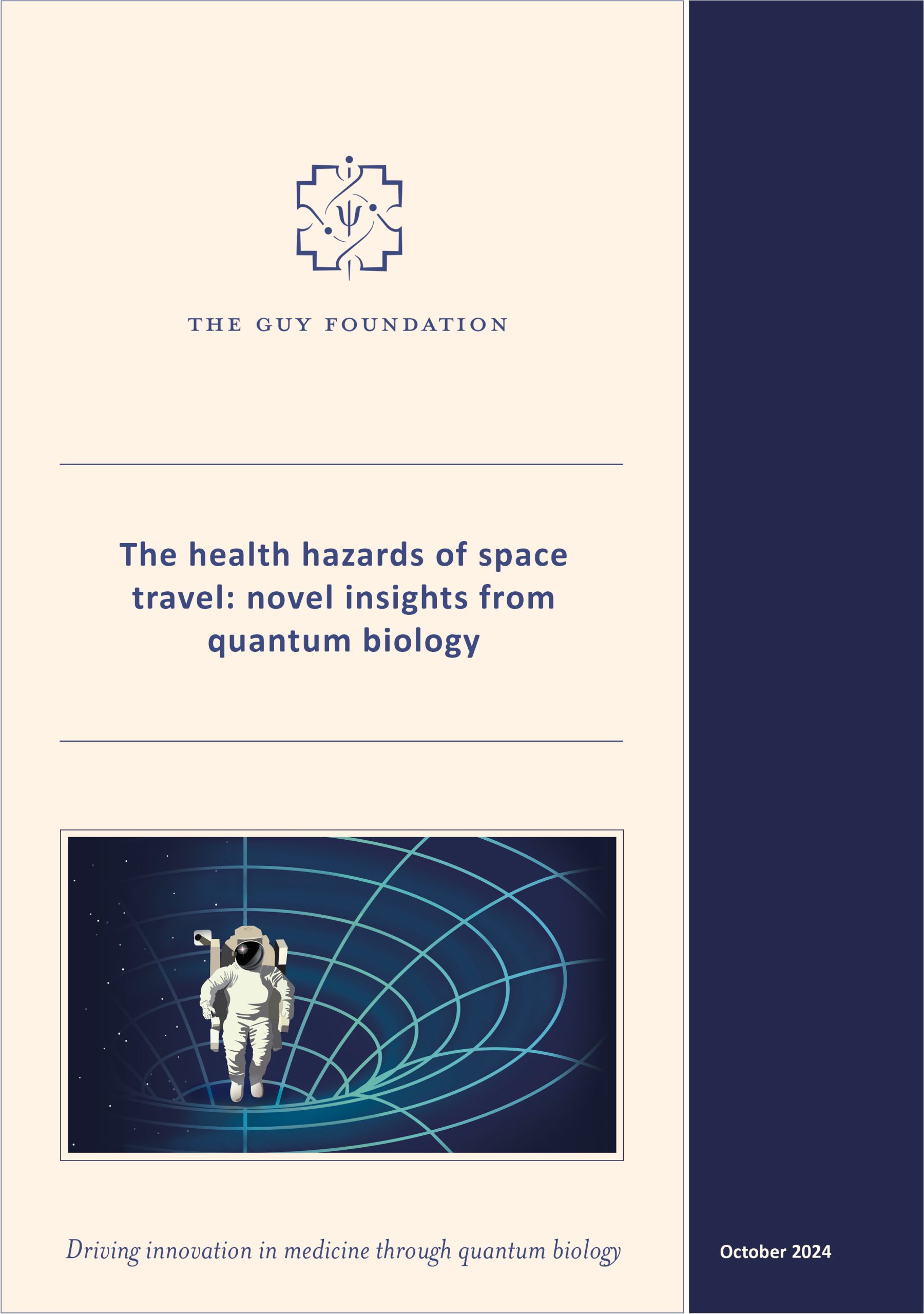Space health
The Guy Foundation’s Space Health Programme aims to assess and better understand the effects of space travel on human health, particularly beyond low Earth orbit.
The Guy Foundation’s report ‘The health hazards of space travel: novel insights from quantum biology’, published in October 2024, was written in conjunction with its Space Health Working Group.
The report’s principal conclusion is that humans venturing into space may face more serious health hazards than previously thought. Conditions such as accelerated ageing, the development of insulin resistance, early diabetes and reproductive issues are likely to get worse the further we travel from Earth. These effects may be difficult or impossible to reverse and, if confirmed by research, will call into question the viability of human exploration in deep space. They appear to be associated with the disruption of cellular bioenergetics, which could also have other perhaps more worrying health consequences.
Quantum biology studies point to the damaging effects of the space environment on mitochondria and the electron transport chain. Contributing factors include reduced and zero gravity, increased radiation, the lack of a magnetic field and the lack of near infrared radiation.
Since the extent and severity of these effects is not fully understood, there is an urgent need for research to characterise and examine how to mitigate them. At the present time, there are no long-term data available on larger numbers of humans, or even small animals, sufficient for a regulatory environment to ensure the safety of increasing numbers of space travellers.
It may be tempting to ignore the problem of space-induced health risks in the face of the enormous achievement it will be to develop lunar and Mars bases and become a multiplanetary species. However, The Guy Foundation, along with other scientists, believes that clearly describing the likely health effects and outlining ways in which they can be mitigated is an essential step before humans venture further beyond the Earth’s protective envelope. It will also help advance our understanding of health and ageing in ways that will be applicable to Earth.
Background
The Guy Foundation believes that quantum effects are playing a far greater role in biology and health than is currently acknowledged. Indeed, we believe a better understanding of quantum biology could lead to significant advances in therapeutics and our ability to practice medicine.
It has been close to a century since the early pioneers of quantum mechanics discussed its role in biology and since Alexander Gurwitsch observed that cells could communicate using metabolically produced photons. This slow progress is now, thankfully, accelerating. Recent breakthroughs in technology are beginning to enable researchers to probe deeper into the extent that life could be using quantum effects. Coupled with the development of metabolic, thermodynamic and quantum theories on the origins of life, this is hastening new insights into biology with the emerging paradigm suggesting that in order to understand life we have to understand how fields integrate with the molecular world.
Space travel is a key area that will benefit from a greater knowledge of the role that fields play in biology. If life is dependent on significant quantum mechanisms to function, such as tunnelling, coherence, spin and resonant energy transfer, then optimal function will be coupled to the planetary environment in which it evolved: a “Goldilocks zone” of environmental conditions.
Studies suggest that space travel has a profound effect on mitochondrial health. The Foundation has long had an interest in the role of bioenergetics and the accelerated ageing phenotypes (AAP), and thus, the role of the mitochondrion, and how to reverse these dysmetabolic conditions. At this stage, the following factors seem particularly significant in terms of inducing space AAP:
- It is likely that reduced, and in particular, zero gravity removes the stimulus to maintain healthy mitochondria and cellular structural integrity, thereby decreasing metabolic adaptability and increasing oxidative stress.
- Increased radiation induces damage in all cellular compartments, resulting in increased oxidative stress. This is especially the case with high linear energy transfer (LET). Oxidative stress will compound any direct DNA damage and further reduce the capacity to repair and maintain DNA.
- The lack of a magnetic field could increase oxidative stress by altering quantum spin-based homeostasis, putting more stress on cells.
- A lack of near-infrared radiation due to artificial, blue-shifted LED-based lighting may result in increased cellular stress.
- The loss of the circadian environmental cues that underpin an organism’s biological rhythms results in cellular stress, further challenging an already metabolically compromised system.
In February 2023 we held a special online Space Health symposium to consider this topic. The Proceedings and talk recordings are available here. We then focused our 2023 Autumn Series on space health; in the six sessions we covered topics ranging from established research on radiation and microgravity to less well-developed areas of investigation, such as magnetic fields and quantum gravity. The Proceedings and talk recordings are available here.
The conclusion we draw from our investigation, and from dialogue with a number of space scientists, is that while we have seen tremendous progress with spacecraft engineering, this has not been matched in associated biological research and our understanding of the consequences of space travel for human health remains limited.
Purpose
There is agreement among those working both within and outside space organisations that a great deal more research needs to be done. For example, although much research has gone into understanding how the Earth’s magnetic field could protect against radiation, none has looked into the possibility that life on Earth is dependent on this magnetic field for metabolic function. Growing research now suggests that biology could well be using magnetic properties such as quantum spin for a number of functions, such as navigation and redox signalling.
The Foundation, through its Space Health Programme, will work in collaboration with relevant scientists and organisations to assess and better understand the effects of space travel and habitation on human health, particularly beyond low Earth orbit.
Our approach
As an independent UK charity, The Guy Foundation is well-placed to play a coordinating and collaborative role in this area. In early 2025 we appointed George Freeman MP as Special Advisor to lead and coordinate our Programme. We are also supported by our Space Health Working Group, an independent group of scientists who act as a pool of expertise for the programme.
We are intending to work with partners in the UK and internationally to generate evidence from the macro to the micro level: from post-space phenotypes to the altered electromagnetic and gravitational fields seen in the space environment, to effects at the quantum level. We have embarked on initial experiments and are now looking to facilitate and establish research collaborations to build the full programme. In time we will also look to develop appropriate standards and protocols.
If you are interested in being involved, or hearing more about this work, please contact us.



